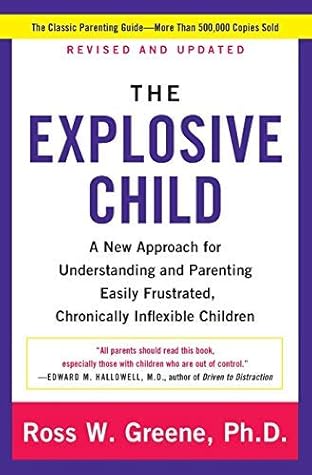More on this book
Community
Kindle Notes & Highlights
Read between
January 9 - January 9, 2025
Kids who exhibit concerning behaviors are compromised in the global skills of flexibility, adaptability, frustration tolerance, emotion regulation, and problem solving.
If your kid could respond to problems and frustrations adaptively, he would. That’s because—and this is, without question, the most important theme of this entire book—kids do well if they can.
What skills is he lacking? The answer to that question will help you understand why your child is responding so poorly to problems and frustrations. What expectations is he having difficulty meeting? That’s going to help you know when your child exhibits concerning behaviors.
Other kids may not have a basic vocabulary for letting people know they “need a break,” that “something’s the matter,” that they “can’t talk about that right now,” that they “need a minute” to collect their thoughts or shift gears, or that they “don’t like that.” Since they lack the wherewithal to adaptively communicate their thoughts, ideas, concerns, perspectives, and emotions, they may communicate these things using less optimal words: “screw you,” “I hate you,” “shut up,” and “leave me alone” are some of the milder possibilities. Some kids can’t muster any words and growl, scream, or hit
...more
She probably didn’t start out with one. “Bad attitudes” tend to be the by-product of countless years of being misunderstood, overcorrected, overdirected, and overpunished by adults who didn’t recognize that a kid lacked crucial thinking skills. But kids are resilient; they come around if we start doing the right thing.
Remember, unsolved problems are expectations your child is having difficulty meeting.


